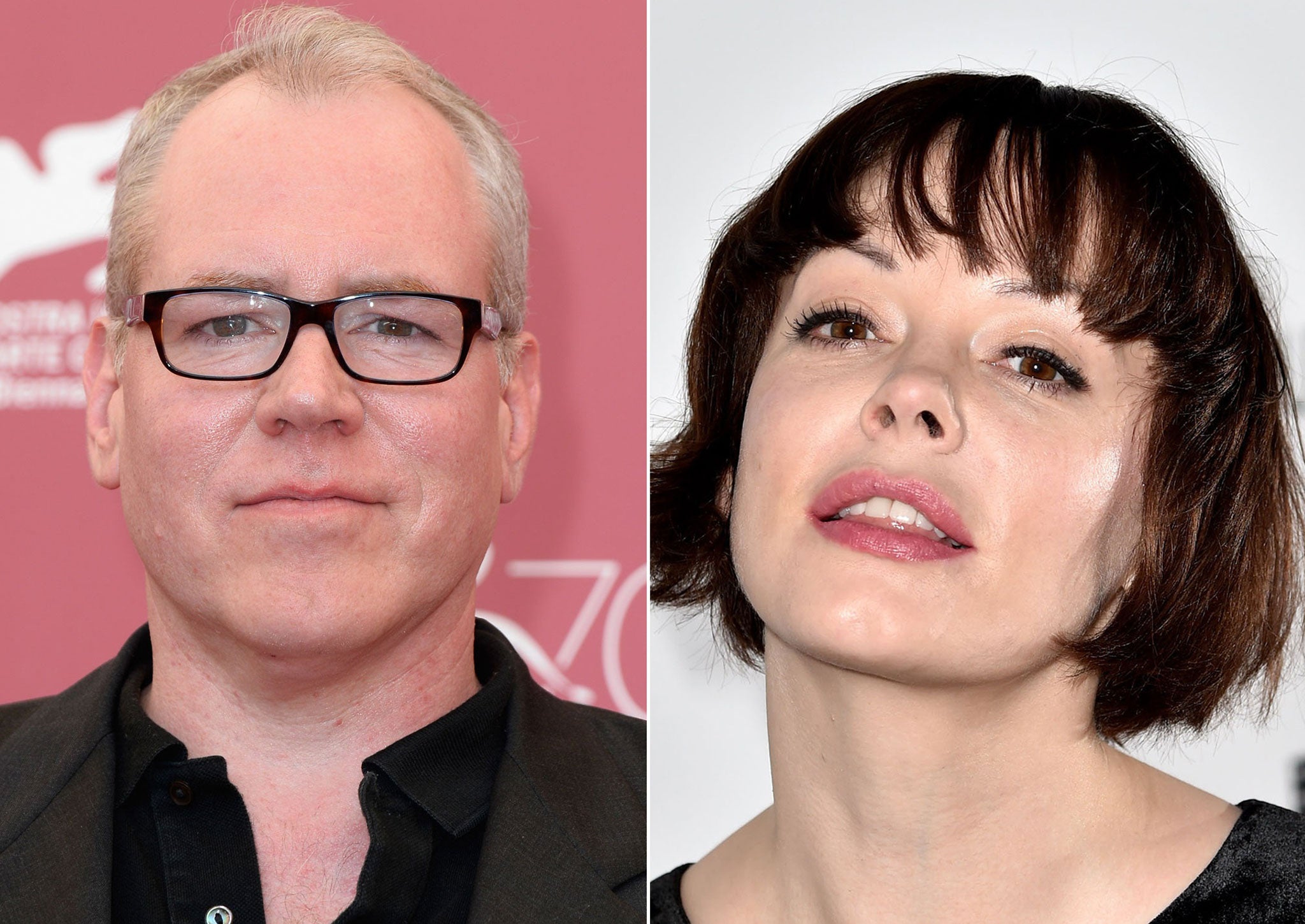Rose McGowan and Bret Easton Ellis need to realise that there is no such thing as 'the gay community'
Gay men, and the LGBTQ population more broadly, are infinitely varied and diverse

In conversation with Bret Easton Ellis on one of his weekly podcasts, the American actress Rose McGowan said that gay men had “fought for the right to stand on top of a float wearing an orange speedo and take molly [MDMA],” and that they were "more misogynistic than straight men." Quite rightly, this caused an uproar amongst those of us who know a gross generalisation when we see one.
Yes, there are misogynist gay men. But there are misogynist straight men and women, too. It is a problem everywhere, and McGowan uses a small sample of misogynist gay men to form a sweeping and inaccurate statement.
What she said was uninformed, reductive and insulting. But it's her “speedo” comment that really got me, employing an outdated stereotype that suggests her only encounters with gay men must have occured during a 1970s pride parade, depicted by Hollywood. It is clear that the sample of gay men forming the basis of her comments is far from reliable.
McGowan has since apologised, albeit half-heartedly: “Could I have articulated my frustration in a better fashion? Undoubtedly. For that I apologize, but I stand my overall point.”
The context of her comments was a discussion of the Dorchester Hotel collection boycott: many people refused to give custom to the Dorchester hotels after their owner, the Sultan of Brunei, introduced Sharia law to his country in May, making homosexuality punishable by death. But in response to this, McGowan thought it was time some criticised the “gay community” for a failure to support women, and called them “idiots” for initiating the boycott.
McGowan’s use of the phrase “gay community”, which she continued to employ in her apologies, further highlights the flaw in her argument. Like the image of gay men as speedo-clad go-go dancers, it is hugely generalising, depicting all gay people as a homogenous group with the same views, the same desires and the same interests – just how misogynist discourse depicts women.
I happen to be a homosexual man, and there are no others who I agree with on everything. Gay men, and the LGBTQ population more broadly, are infinitely varied and diverse. No two people share all of their views.
Even Bret Easton Ellis, who often reminds us during the podcast that he identifies as a gay man, is guilty of generalising what he calls “my community”. “Gay self-victimising,” he says, “is a part of gay culture”. He sees the Dorchester boycott as “a process of narcissistic self-victimisation, gay insanity”.
Strangely, most of the story’s media coverage has ignored these inflammatory comments, which are often more cutting than McGowan’s throw-away insults. Media outlets chose to headline only McGowan, running countless stock images of her posing at glamorous events. Ellis admits to sharing her views, so why ignore him? Is it because he is a man, and therefore untouchable? Or is it because he is gay, and too risky to pass comment on?
The tendency to amplify McGowan’s error and ignore Ellis’ is uncomfortable, especially when the story is so tied up with issues of misogyny and homophobia. As a woman and a Hollywood actress, McGowan is seen as fair game for scrutiny. It’s all too easy to decontextualize her words and hurl them back at her in tabloidy headlines. By doing this we hope to display our unflinching support for the LGBT population.
To then attack the views of a gay man – Ellis's – risks looking counterproductive. However, granting equal scrutiny to his words is crucial in dismantling the myth that the LGBT population is a homogenous, like-minded, foreign group. Ellis’ words demonstrate the broad-ranging views held by different LGBT people. His words are wrong and divisive, but at least they go some way to disprove the generalisations he makes.
When McGowan awoke this morning in the heterosexual female community, wherever that is, and Ellis awoke in the gay community, which I suppose is somewhere warm enough to wear speedos, I wonder what they thought about the media storm they've created within those few minutes of their podcast.
I don't like to make assumptions, but perhaps they regret their careless generalisations. Perhaps the attacks they are facing from people of all walks of life — from all "communities" — are proof that such generalisations are never supportable.

Join our commenting forum
Join thought-provoking conversations, follow other Independent readers and see their replies